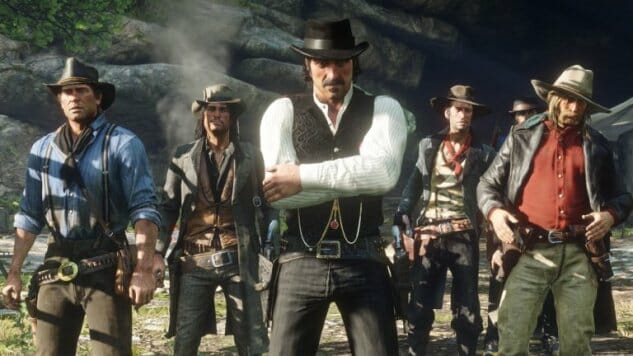Rockstar’s 100-Hour Workweek Is a Sign of Abuse, Not Passion

If you worked 12 hours a day, seven days a week, from, let’s say, 9 a.m. to 9 p.m., forgoing basically all time at home save for a few hours in the morning and a few after work before collapsing from exhaustion and waking up the next day at 7 to go back to your workplace (with realistically no hope of seeing anyone outside of work or home), you’d be working an 84-hour workweek.
Ratchet that up to 13 hours a day, with no weekends, and you’d be looking at a 91-hour workweek. Getting in at 8 a.m., working until 9 p.m. Or, if you’d prefer, getting in at 9am and working until 10pm. Make it 14 hours a day, working from 8 a.m. to 10 p.m., and your 98-hour workweek would approach the schedule that Dan Houser, lead writer on the upcoming Red Dead Redemption 2, says his team worked “multiple times in 2018.”
That quote comes from a lengthy and fawning article written by Harold Goldberg over at Vulture last week, titled “How the West Was Digitized: The making of Rockstar Games’ Red Dead Redemption 2.” It’s clear in the framing of the workweek comment Houser was meaning it as a point of pride—something that his team can be proud of, since they worked their butts off making their game.
To Houser’s credit, he issued a clarifying statement to Kotaku one day after the Vulture article, stating that the 100-hour comment was meant to only refer to the core writing team and not necessarily anyone else at the company. “No one, senior or junior, is ever forced to work hard,” Houser wrote.
But there’s something insidious about Houser’s tone in the Vulture piece, that notion that long working hours are something to be effusively proud of, especially in the high-profile, AAA games industry. It’s baked into the mindset of the industry, that working for games is in itself a privilege and thus any subpar working conditions are a fair price to pay for the opportunity to do a job that is sold as play.